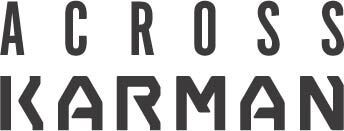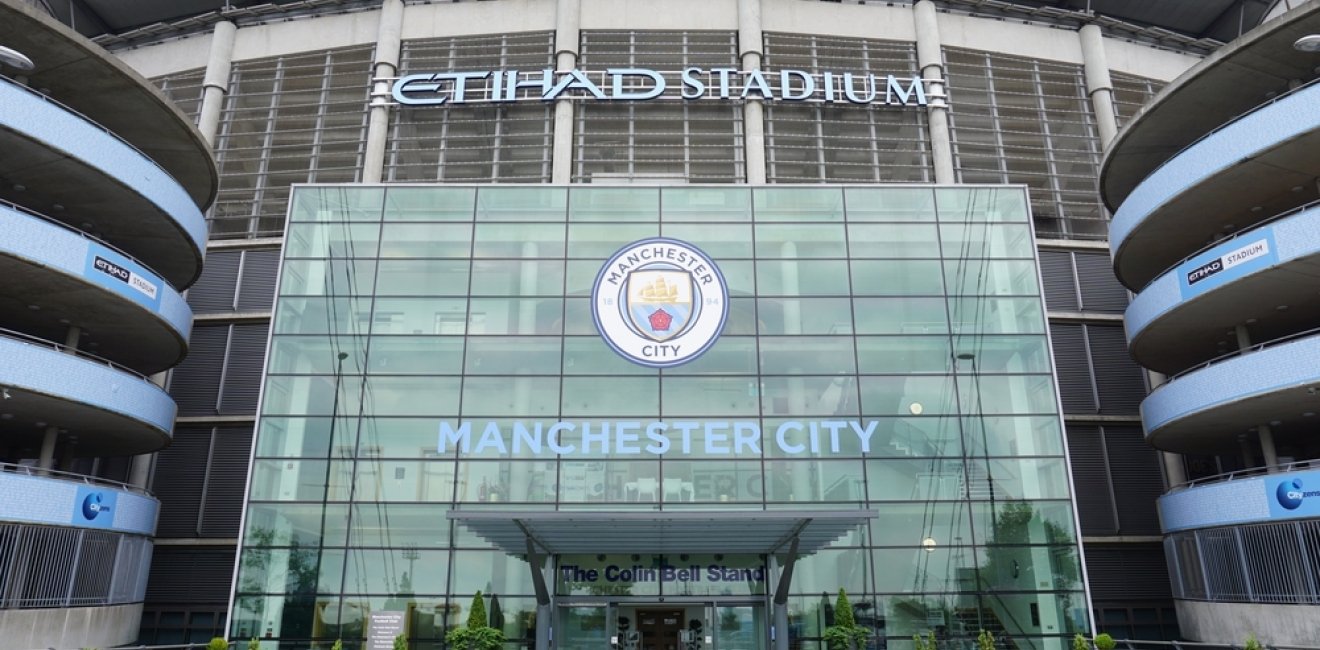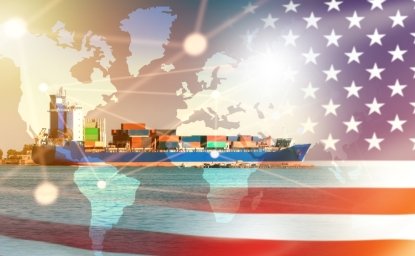Gulf investment in European soccer threatens to become a hot potato.
That is if the European Union’s competition authorities decide to investigate assertions by Spain’s top soccer league, La Liga, and a second-tier Belgian club, Royal Excelsior Virton (RE Virton), that subsidies from Qatar and the United Arab Emirates to two European professional football clubs distort competition.
The complaints and legal battles between UAE-owned Manchester City and the Premier League reflect changes in European soccer, which supporters' associations or local business people historically bankrolled.
Speaking off the record, European Union officials said the complaints would not be rejected out of hand but would not be acted on immediately because of “political sensitivities.”
A European Commission spokesperson confirmed receipt of the Spanish and Belgian complaints but declined to say whether it would entertain them. Speaking off the record, European Union officials said the complaints would not be rejected out of hand but would not be acted on immediately because of “political sensitivities.”
Gulf influence grows
The rise of Qatar’s Nasser al-Khelaifi to the pinnacle of European soccer governance, despite multiple legal entanglements and accusations of alleged corruption and conflicts of interest, symbolizes the sensitivities.
Besides chairing the top Qatar-owned French club Paris Saint-Germain (PSG), Al-Khelaifi is on the executive committee of the Union of European Football Associations (UEFA), the continent’s soccer governing body, and heads the European Club Association (ECA) that represents 600 professional European football clubs.
In Qatar, Al-Khelaifi serves as minister of state and manages Qatar Sports Investments, a subsidiary of Qatar Investment Authority, the Gulf state’s $475 billion sovereign wealth fund, on whose board he sits. Al-Khelaifi is also the chairman of beIN Sports, a pivotal player in European football broadcast rights.
La Liga and RE Virton have asked the Commission to exercise its year-old ex officio powers under the Foreign Subsidies Regulation (FSR) to investigate their complaints about funding by non-EU members that allows the Commission to “redress, if needed, their distortive effects.”
Belgian public radio reported that RE Verton’s complaint asserts that the UAE has poured $46 million into UAE-owned rival SK Lommel between February 2022 and September 2023.
Lommel, backed by its owner, the UAE’s City Football Group, which also owns Manchester City, insists private investors provided the funds.
RE Virton, which lost its case in Belgian courts, blames its relegation in May from the lowest Belgian professional league to amateur status on unfair UAE funding that shielded Lommel from demotion.
La Liga claims that Qatari funding allowed Al-Khelaifi’s PSG to distort markets by paying above-market sums for top players.
La Liga President Javier Tebas cited as examples the US$260 million PSG paid for Brazilian player Neymar in 2017 and US$160 million last year to retain Kylian Mbappé.
Neymar has since transferred to Saudi Arabia’s Al Hilal for US$100 million, while Mbappé will join Real Madrid in July.
In a statement, La Liga said it “has filed a complaint alleging that PSG has received foreign subsidies from the State of Qatar, which has allowed it to improve its competitive position, thus generating significant distortions in several national and EU markets.”
La Liga asserted that "this enables them to boost their sporting performance, as well as affecting the ability of rival clubs to recruit."
PSG has a budget of $860 million compared to most French league clubs' average $150 million budget. In addition, as a top-performing team, PSG takes a bigger share of the Qatar-owned beIN-generated revenue from broadcast rights.
Legal disputes escalate
The European Commission complaints and the legal battles in England’s Premier League are interlinked because RE Virton and Manchester City are owned by UAE Vice President Mansour bin Zayed Al Nahyan’s City Football Group.
“We have been denouncing PSG and (Manchester) City for years,” said La Liga President Javier Tebas.
With stakes in clubs beyond Britain and Belgium, in France, Italy, Spain, the United States, Australia, India, Japan, Brazil, Uruguay, and China, City Football Group has introduced a new corporate business model for global soccer.
There are risks of conflict of interest, even of fairness in competitions, especially in international competitions where these clubs could come up against each other.
Rafaelle Poli, the head of the International Center for Sports Studies’ Football Observatory, warned that the model “clips the wings of the competition, not an ideal situation. There are risks of conflict of interest, even of fairness in competitions, especially in international competitions where these clubs could come up against each other.”
A study by the Center concluded that foreign individuals or entities have stakes in 43 percent of first- and second-division clubs across 10 European countries. In 84 percent of the cases, or 122 clubs, foreigners have a majority stake.
The Spanish and Belgian complaints challenge the UAE model, even if the Commission’s writ is limited to EU members Belgium, France, Italy, and Spain.
If the Commission were to investigate the Spanish and Belgian complaints and rule in their favor, it would increase pressure on the English Premier League and the British government to take similar action against Manchester City and Saudi-owned Newcastle United, even if post-Brexit Britain is no longer bound by European rules and regulations.
Adding fuel to the fire, Manchester City and the League are locked into legal battles that could shape the future of English soccer and potentially European football.
More than a year ago, the League leveled 115 charges of financial irregularity against the club – charges Manchester City has denied. Hearings on the charges are scheduled for later this year.
In response, Manchester City initiated legal proceedings in June to throw out the League's legal architecture designed to ensure a level playing field. The club is seeking annulment of rules restricting sponsorship of companies linked to their owners.
Manchester City wants companies to have the right to pay what they wish for sponsorships rather than be limited by the market rate. The club’s lawyers have warned that failure to lift the restriction could persuade the club and its owners to halt funding for women’s soccer and community projects.
The move could change the world’s foremost sports league and pressure the European Commission to act on the Spanish and Belgian complaints. The annulment would abolish the League’s cost controls and allow Gulf owners, including the Public Investment Fund (PIF), Saudi Arabia’s sovereign wealth fund that owns Newcastle United, to distort competition by wielding their financial muscle.
Citing Newcastle, Manchester City, and Qatar’s failed bid to acquire the club’s arch-rival, Manchester United, as examples, Gulf-focused human rights groups called last year on the League and the British government to ensure that state-aligned owners of clubs are barred from exercising ownership control.
Regulating European soccer
In letters to Premier League CEO Richard Masters, British State Secretary for Culture, Media, and Sport Lucy Frazer, and State Minister for Business and Trade Nigel Huddleston, the groups said they were “concerned that the political, social, and cultural power associated with ownership of top English football clubs grants foreign states undue influence and provides cover for state authorities that continue to flagrantly commit grave human rights abuses.”
They insisted that “the Premier League must adopt and implement sufficiently objective and robust ownership criteria to prohibit the takeover of English football clubs by individuals or entities susceptible to the influence of state actors or associated with human rights violations.”
Newcastle could prove particularly vulnerable given that Saudi Crown Prince Mohammed bin Salman chairs the sovereign wealth fund that owns the club.
When the fund acquired Newcastle, the Premier League said it had received “legally binding assurances that the Kingdom of Saudi Arabia will not control Newcastle United” but refused to provide chapter and verse on those assurances.
The human rights groups asserted that a California court filing in a case involving the PGA Tour, the organizer of golf's flagship events, and LIV Golf, a PIF-owned start-up, casts doubt on the assurances.
The filing identified the PIF as a “sovereign instrumentality of the Kingdom of Saudi Arabia.” The filing said the Fund’s governor, Yasir al-Rumayyan, who also chairs Newcastle, was “a sitting minister of the Saudi government.”
The court case was shut down after PGA and LIV Golf agreed to merge.
To be fair, Saudi Arabia’s ownership of Newcastle has benefitted the club in various ways.
The club’s day-to-day managers, minority co-owners Amanda Staveley, her husband, Mehrdad Ghodoussi, and businessman Jamie Reuben, have improved staff morale and professionalized the club’s women’s team.
They introduced a living wage higher than the minimum wage, beefed up staffing, and splashed US$500 million on new player acquisitions.
The Emirati and Saudi governments, of which Mansour and Al-Rumayyan are part, are accused of gross human rights violations.
Even so, the Premier League has yet to apply stricter ownership rules adopted last year to Manchester City and Newcastle, which block anyone found to have committed human rights abuses from running a club. The Emirati and Saudi governments, of which Mansour and Al-Rumayyan are part, are accused of gross human rights violations.
The upshot of all of this is that Gulf investment has highlighted the need for an independent regulator to ensure a level playing field and defend the rights of most clubs against increased domination by a few high-net-worth individuals and entities.
The problem is the EU is not interested, and neither FIFA, the global governing soccer body, nor UEFA, its European leg, is fit for purpose in the absence of reforms that reduce domination by elite clubs and their owners.
Andrew Page, a member of Newcastle United Fans against Sportswashing, said, "We've become pawns in a game in which the Saudis use us. Rather than representing our community, Newcastle has become something else entirely."
The views expressed in this piece are those of the author and do not express the official position of the Wilson Center.







